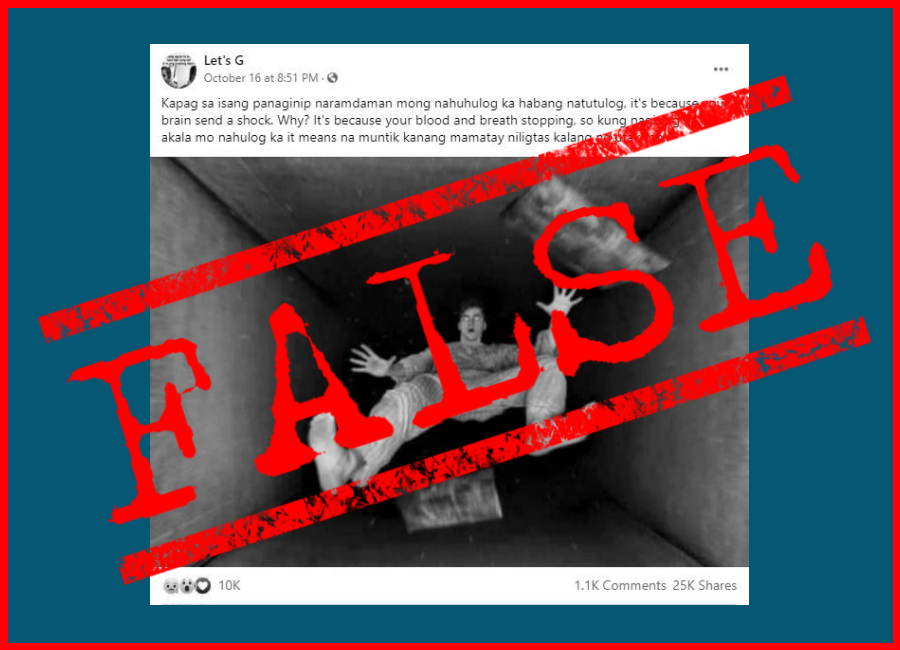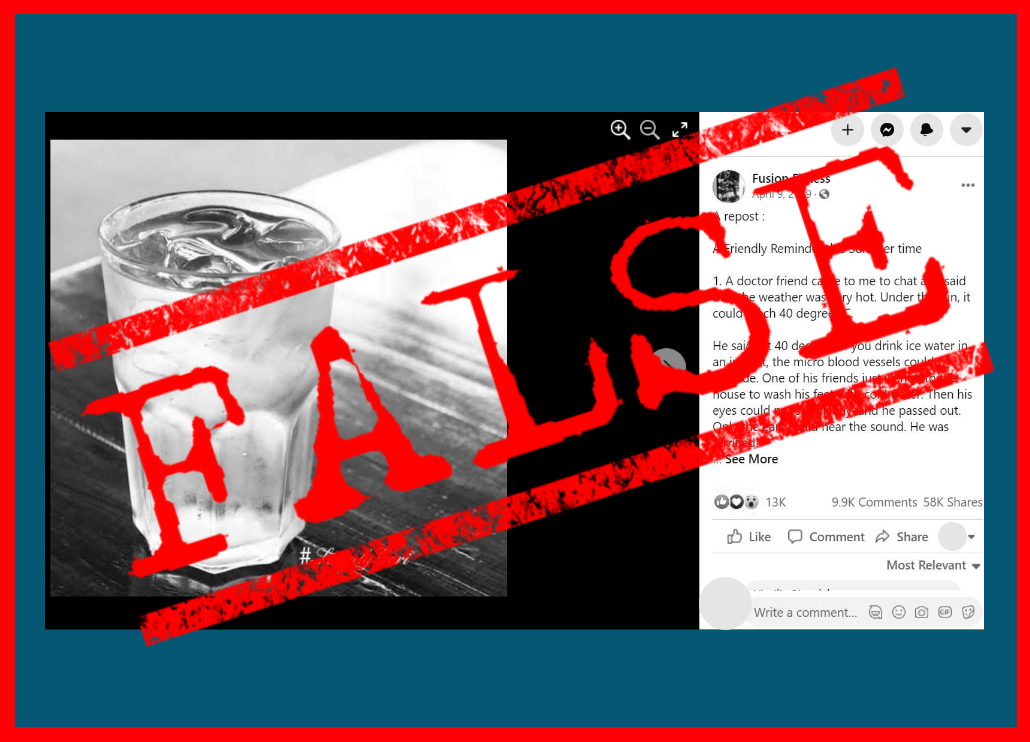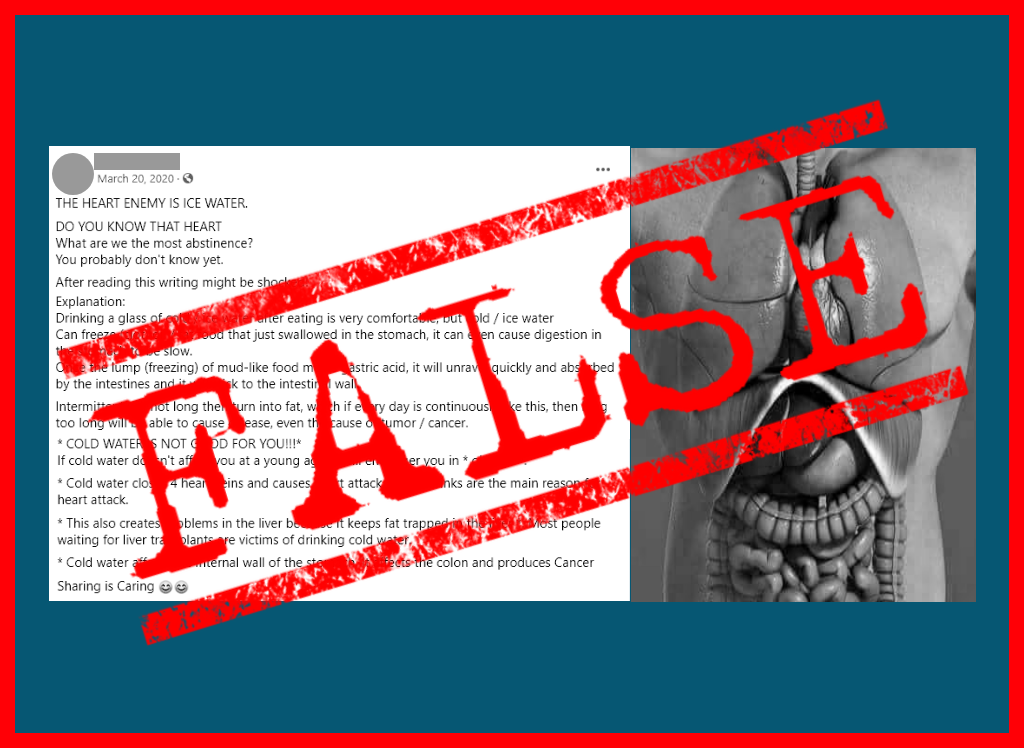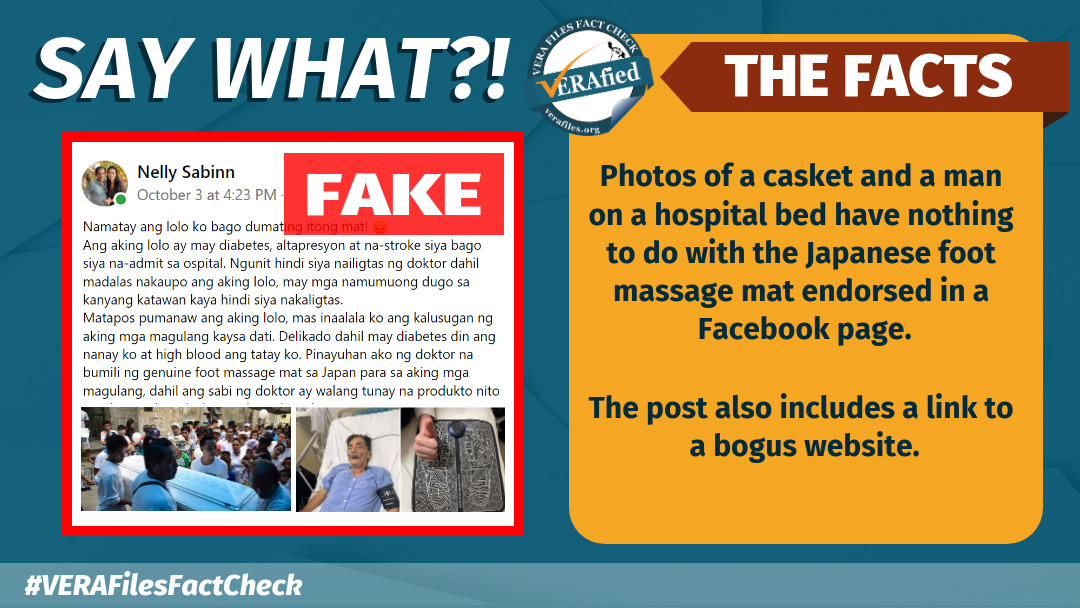An Oct. 16 Facebook (FB) status update by the page Let’s G falsely claims hypnic jerks, or the sensation of “falling” while sleeping, is the brain’s way of saving a person “from death.” The post, which now has over 25,000 shares, said the “shock” happens as a signal from the brain that one’s blood circulation and breathing supposedly stopped during sleep.
This is not true.
Hypnic jerks, also known as sleep starts, are “normal physiologic movements not related to death,” according to an Oct. 22 email interview by VERA Files Fact Check with sleep specialist and pediatric neurologist Jonalyn Chris Ang, medical director of the NeuroSleep Center of the Philippines, a private clinic treating patients with sleep problems.
Contrary to the false post’s claim, Ang said it is “not proven” that hypnic jerks are provoked by apnea or changes in blood circulation. Instead, they are “natural phenomena” that occur during a transitional period from wakefulness to sleep.

Virginia Delos Reyes, head of the Sleep Lab and Sleep Disorders Clinic at the Lung Center of the Philippines, also said in an email interview on Oct. 25 that sleep starts are “usually benign” and have a high prevalence of about 60 or 70 percent in people, affecting all ages and both sexes.
She added that these are “often associated with sensory, auditory, or visual sensations.” Apart from the feeling of falling, a person may also experience tingling or pain, hear crackling noises, or see flashing lights, among others.
People may not even recall having them “if they do not result in an awakening,” Delos Reyes said. However, she warned that frequent, intense, or repetitive sleep starts could potentially result in insomnia.
There is no definite explanation as to why these twitches occur, according to sleep experts interviewed by TIME magazine and the BBC in previous reports. However, Ang said “regular sleep, avoidance of stress, decreased intake of stimulants, such as caffeine” may prevent them from happening.
This is because “stress and fatigue will worsen hypnic jerks since there will be disruption” in the transition from wake to sleep, she added.
Delos Reyes also said “prior intense physical work or exercise and emotional stress all can increase the frequency and severity of sleep starts.”
The FB post may have surfaced due to the reported surge in stress among Filipinos because of the health crisis. According to the latest Social Weather Stations survey, around 86 percent of Filipinos found themselves stressed as a result of COVID-19.
As the country observed Mental Health Week in the second week of October, medical practitioners also reminded the public to take care of their mental health amid the pandemic.
The earliest trace of the image used in the post, showing a man in pajamas falling into a void, was uploaded March 26, 2015 on stock image site iStock by Getty Images.
According to social monitoring tool CrowdTangle, the untrue post could have reached 275,841 FB users. Its top traffic generators are public groups ���FVCKING OTAKU’S���,





